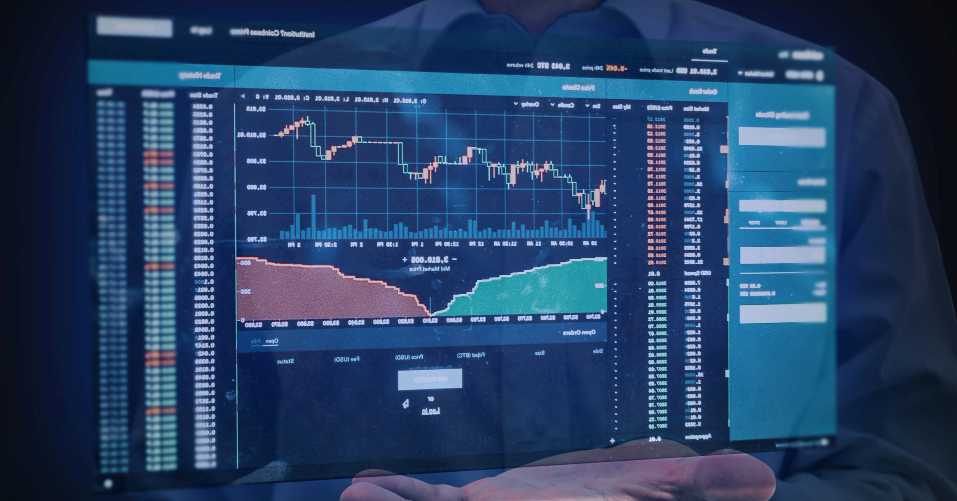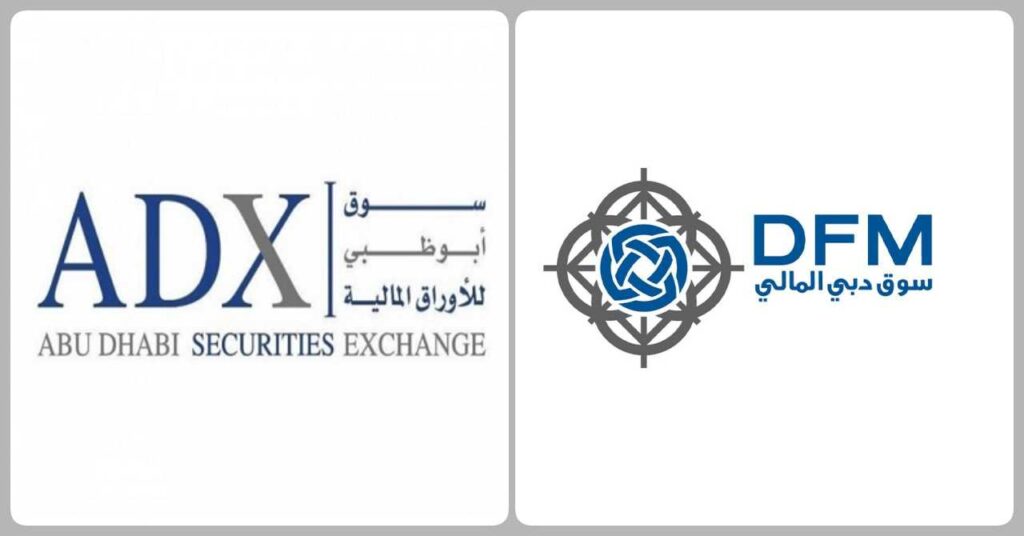For those looking to invest in the UAE stock market, the region offers a plethora of investment options that are readily available to expats and non-resident foreigners. Moreover, the UAE’s legal framework provides robust protection for investors, ensuring a secure investment environment.
From understanding the investment landscape to exploring key considerations and strategies, this guide will serve as your go-to resource for making informed investment decisions in this dynamic market. Keep on reading until the end to learn more.
Contents
- Investment in the UAE
- UAE: Investment Climate
- Investing In UAE Stocks
- The Big 3 Stock Exchanges in the UAE
- Step-by-Step Guide to Buying Stocks in the UAE
- Step 1: Get Your Own Investor Number (NIN)
- Step 2: Choose a Stock Broker
- Step 3: Pick a Stock (Company) to Invest In
- Step 4: Choose a Stock Exchange
- Step 5: Buy Stocks
- Investing in UAE and Other International Stocks
- UAE’s Top 3 Online Stock Brokers
- Frequently Asked Questions
- 1. How does the stock market in the UAE function?
- 2. What types of UAE stocks are available for purchase?
- 3. Can expats or tourists invest in the UAE stock market?
- 4. Is a NIN necessary to invest in UAE stocks?
- 5. Do I need a Tax Identification Number (TIN) to invest in the UAE stock market?
- 6. How can I obtain a NIN for investing in UAE stocks?
- 7. Are there any restrictions on foreign ownership of UAE stocks?
- 8. What are the trading hours for the UAE stock market?
- Video: How to Invest in the UAE Stock Market for Beginners
- Summary

Investment in the UAE
Investing in the United Arab Emirates offers numerous advantages, backed by a business-friendly legal, regulatory, and financial landscape.
- Touted as one of the world’s freest economies, the UAE presents a global hub that embraces a forward-thinking business culture.
- With a staggering $10.3 billion in foreign direct investment (FDI) received in 2018, the country stands as the Gulf’s second-largest economy, attracting investments primarily in trading activities, real estate, finance, insurance, and manufacturing.
- This growing investment trend is fueled by a diverse range of asset classes available to expats, catering to varying risk profiles.
- Beyond the bustling city of Dubai, other Emirates like Abu Dhabi, Ras Al Khaimah, and Sharjah also present enticing investment opportunities.
- While the country’s oil and gas reserves continue to contribute to its prosperity, the UAE’s economy has evolved into an open and thriving environment.
With impressive projected GDP growth of 3.7% in 2019, as forecasted by the International Monetary Fund (IMF), and a non-oil growth rate of 3.4% anticipated by the central bank, investing in the United Arab Emirates emerges as an attractive proposition for wealth-building endeavors.
UAE: Investment Climate
Investment climate refers to the overall conditions and factors that influence the attractiveness and viability of investing in a particular country or region.
In the case of the UAE, the investment climate is viewed positively, with commendable efforts made to strengthen the business environment and foster a diverse private sector.
The country’s commitment to the rule of law stands out as a key criterion for investors, providing a sense of security and confidence in their investments.
- Additionally, the UAE is renowned for its business-friendly atmosphere, being one of the easiest places to conduct business globally.
- The streamlined process of obtaining licenses and the allowance for 100% foreign ownership in certain structures further contribute to the UAE’s appeal.
- Investors, including expats and non-residents, can swiftly enter the UAE Stock Exchange with minimal paperwork, while the thriving real estate market and the availability of various asset classes such as private pension schemes and mutual funds present attractive investment opportunities.
Moreover, the UAE’s status as an oasis of economic, financial, and political stability acts as a clincher for many investors.
The government’s ambitious development goals and the resulting certainty they offer create a favorable climate that further enhances the comfort level of expats and non-residents considering investments in the UAE.
Investing In UAE Stocks
Are you now convinced to get started in investing in UAE stocks? If so, here’s what you need to know.
Investing in the UAE stock market can be a rewarding endeavor, and the first step is to open a stock brokerage account with a local broker registered on one of the three prominent UAE stock exchanges: the Dubai Financial Market (DFM), the Abu Dhabi Securities Exchange (ADX), or the NASDAQ Dubai.
Additionally, prospective investors are required to apply for a NIN investor number at the DFM, which grants them the ability to purchase stocks on any of the listed exchanges.
By gaining access to these established platforms, investors can tap into the vibrant trading atmosphere of the UAE and seize opportunities in a market known for its potential for growth and diversification.
The Big 3 Stock Exchanges in the UAE
The United Arab Emirates (UAE) has become a prominent hub for international business in various industries, such as construction, banking, and finance.
If you’re considering investing in the UAE stock market, it’s essential to understand the three principal stock exchanges in the region: the Abu Dhabi Securities Exchange (ADX), the Dubai Financial Market (DFM), and Nasdaq Dubai.
While these exchanges share some similarities, they also have distinct differences, advantages, and disadvantages.
Abu Dhabi Securities Exchange (ADX) and Dubai Financial Market (DFM)

The DFM was established in 2000 and later became a Public Joint Stock Company (PJSC) with 20 percent of its shares offered for public subscription.
The ADX, established in 2000 as well, is based in Abu Dhabi. Both the DFM and ADX are on-shore UAE exchanges, and trading occurs in UAE Dirhams.
However, foreign investors’ access to these exchanges is limited to 49 percent of the relevant company.
Before listing on the DFM or ADX, issuers, whether domestic or foreign, must obtain approval from the Emirates Securities and Commodities Authority (ESCA).
The securities that can be listed include shares of UAE-incorporated PJSCs, shares of foreign companies, bonds, debt instruments, and other approved securities.
ESCA imposes additional requirements for listing securities of foreign companies, including compliance with the laws of the issuer’s country of incorporation, being in the form of a PJSC or equivalent, and being listed on its domestic market.
The DFM also requires issuers to provide financial position evidence, accounts compliant with IFRS or US GAAP, and information in both English and Arabic.
Listed issuers on the DFM and ADX must comply with ongoing obligations, such as disclosing price-sensitive information, reporting directors’ share dealings, and disclosing shareholdings exceeding 5 percent.
These exchanges also require issuers to provide audited financial statements and other financial information as required by ESCA.
Nasdaq Dubai

Nasdaq Dubai, previously known as the Dubai International Financial Exchange (DIFX), was established in 2004 and is regulated by the Dubai Financial Services Authority (DFSA).
In 2009, Nasdaq Dubai was acquired by the DFM, and some back-office functions were merged.
While the exchange encourages listings in UAE Dirhams and aligns its opening hours with the DFM, it maintains separate listing requirements and regulatory oversight.
Nasdaq Dubai accepts foreign issuers and a wide range of equities, sukuk, debt, and structured products.
The DFSA evaluates the suitability of issuers based on factors such as published audited accounts and constitutional documents.
Nasdaq Dubai typically requires a minimum free float of 25 percent to ensure an adequate and open market in the issuer’s securities. Valuation is often determined through a book-building process.
Similar to other exchanges worldwide, once an issuer obtains a listing on Nasdaq Dubai, it must comply with various “continuing obligations.”
It’s important to note that recent reforms are aimed at increasing transparency and compliance with corporate governance best practices in the UAE stock exchanges.
The introduction of a Corporate Governance Code for Joint-Stock Companies and potential changes to the minimum free float requirement may enhance the attractiveness of these exchanges for local and foreign investors.
Understanding the distinctions and unique aspects of the ADX, DFM, and Nasdaq Dubai will help you make informed decisions about which exchange aligns best with your investment goals and strategies.
It’s advisable to consult with a knowledgeable financial advisor or broker to ensure compliance with regulations and to navigate the UAE stock market successfully.
Step-by-Step Guide to Buying Stocks in the UAE
Step 1: Get Your Own Investor Number (NIN)
- To start investing in the UAE stock market, you’ll need to obtain an Investor Number (NIN).
- Complete the Investor Number Request Form, sign it, and submit it along with the required documentation to the Dubai Financial Market (DFM).
- You can apply online through eServices, visit the DFM trading floor in person, or contact a UAE-based broker for assistance.
Step 2: Choose a Stock Broker
- If you don’t have a trading license, you’ll need to purchase stocks through a local stock broker or a UAE bank.
- Visit the DFM official website to find a list of stock brokers and their ratings.
- Alternatively, major banks in Dubai, such as Abu Dhabi Commercial Bank, Standard Chartered, and ENDB, offer brokerage services to both foreigners and UAE nationals.
- The Ras Al Khaimah Investment Authority is a government agency that provides brokerage services exclusively to UAE citizens.
Step 3: Pick a Stock (Company) to Invest In
- Selecting a stock to invest in should be based on fundamental analysis and thorough research of the company you’re interested in.
- As a beginner, it’s generally advisable to avoid investing in small, unfamiliar tech companies and instead focus on well-known companies within your knowledge and understanding.
- If you’re unsure about making investment decisions independently, consider leveraging copy trading or financial advisory services provided by your stock broker or bank.
Step 4: Choose a Stock Exchange
- In the UAE, you have three options for stock exchanges: the Dubai Financial Market (DFM), the Abu Dhabi Securities Exchange (ADX), and Nasdaq Dubai.
- Choose an exchange based on where the stocks you want to invest in are listed.
- To gain access to any of these exchanges, you’ll need a valid trading license or work with a stockbroker who has one.
Step 5: Buy Stocks
- To purchase stocks, fill out a purchase form specifying the stocks you want to buy and the quantity.
- Submit the form to one of the exchanges, and upon completion, you’ll receive an ownership certificate as proof of your stock ownership.
Remember, investing in stocks involves risks, so it’s crucial to conduct thorough research, diversify your portfolio, and consider your risk tolerance before making investment decisions. Consulting with a financial advisor or broker can provide valuable guidance throughout the process.
Investing in UAE and Other International Stocks
Investing in stocks, particularly international stocks, can be greatly facilitated by adopting a more hands-on approach and utilizing the services of online stock brokers.
These platforms offer a level of convenience that is particularly appealing to investors seeking to diversify their portfolios beyond the UAE market.
With online stock brokers, the entire investment process becomes faster and more accessible, eliminating the need for in-person transactions.
- Through a single dashboard, investors gain the ability to explore and invest in various markets and asset classes from anywhere in the world.
- Notably, there’s no requirement for investors to possess a NIN investor number or TIN tax number, streamlining the account opening process.
- Additionally, online brokers provide valuable resources such as virtual trading accounts and educational tools, enabling investors to test their trading strategies and enhance their knowledge base.
Embracing the possibilities offered by online stockbrokers can empower investors to navigate international markets with greater flexibility and informed decision-making.
UAE’s Top 3 Online Stock Brokers
When it comes to investing in the stock market, the significance of choosing the right online stock broker cannot be overstated.
The broker you select, along with its fee structure, can ultimately determine whether your investment journey leads to profitable outcomes or unfortunate losses.
A well-chosen broker will not only provide you with a seamless and user-friendly trading platform but also offer competitive fees and commissions that align with your investment goals.
1. eToro
- Minimum Deposit: $200
- Key features: Simple order types, access to 2800 commission-free stocks, copy trading with professional traders, free demo paper trading account.
2. Sarwa
- Minimum Deposit: $5
- Key features: Full-service broker combining automated investing, self-directed trading, and financial advisory services, regulated by UAE’s main regulatory authorities (DFSA and FSRA).
3. Interactive Brokers
- Minimum Deposit: $0 ($2000 for margin account)
- Key features: Wide range of over 100,000 financial instruments, including 17,500 shortable stocks, deep liquidity, competitive fees structure, multiple trading platforms (GlobalTrader desktop, IBKR Mobile, Trade WorkStation Client Portal) with advanced customization options and features for all types of trading.
NOTE: Remember, each platform has its own advantages and suitability, so it’s important to consider your specific investment goals, risk tolerance, and trading preferences when choosing the right platform for your needs.
Frequently Asked Questions
1. How does the stock market in the UAE function?
The UAE stock market operates as a public exchange where investors and traders can purchase and sell shares of companies. Investing in these shares grants partial ownership of the companies, and investors can receive dividends and profits when the companies perform well.
2. What types of UAE stocks are available for purchase?
There are various types of stocks available in the UAE, including common stocks, (convertible) preferred stocks, new equity issues, hybrid stocks, and Rule 144 stocks. Additionally, there are stock derivatives, which are financial instruments with the underlying asset being the price of a share.
3. Can expats or tourists invest in the UAE stock market?
Yes, expats and tourists have the opportunity to invest in the UAE stock market. To do so, they need to obtain a National Investor Number (NIN) and provide their passport and bank account details.
4. Is a NIN necessary to invest in UAE stocks?
Yes, a NIN is required if you wish to buy and sell UAE stocks listed on the UAE stock exchanges. However, if you’re trading international stocks through an online broker, you do not need a NIN.
5. Do I need a Tax Identification Number (TIN) to invest in the UAE stock market?
No, you do not need a TIN to begin investing in the UAE stock market.
6. How can I obtain a NIN for investing in UAE stocks?
To obtain a NIN, you can approach the UAE’s stock market regulatory authorities or the designated agency responsible for issuing NINs. They will guide you through the process and provide the necessary requirements.
7. Are there any restrictions on foreign ownership of UAE stocks?
The UAE has certain restrictions on foreign ownership of stocks in specific sectors. It is important to familiarize yourself with the regulations and guidelines set by the UAE’s regulatory authorities to ensure compliance.
8. What are the trading hours for the UAE stock market?
The UAE stock market typically operates from Sunday to Thursday, with trading hours varying based on the specific stock exchange. It is advisable to check the official trading hours for the respective exchange you are interested in.
Video: How to Invest in the UAE Stock Market for Beginners
Are you new to the world of the stock market in the UAE? If so, here’s a video that will guide you through the process of investing in the UAE stock market.
In this video, you will discover three crucial things to consider before getting started and learn about common beginner mistakes to avoid.
One of the first steps is determining how much of your money you can set aside for investments, with a recommended rule of thumb being 10-15% if you’re uncertain.
Additionally, you will gain insights on how to select the right stocks and find the best brokers to meet your needs. Stay tuned until the end of the video, where the vlogger unveils their top choices for beginner-friendly brokers.
Get ready to embark on your journey to the UAE stock market with confidence and make informed investment decisions!
Summary
In conclusion, investing in the UAE stock market provides a wealth of opportunities for both expats and non-resident foreigners.
The region’s extensive range of investment options, coupled with the robust legal framework that safeguards investor interests, creates a secure and promising investment environment.
When it comes to investing in the UAE stock market, there are several common options available to investors.
You can choose to utilize an online stock broker, a local stock broker, or a UAE local bank.
The choice ultimately depends on your investment goals and preferences.
If you are primarily interested in investing in the UAE market, a local broker or a UAE bank may be suitable for your needs.
On the other hand, if you wish to diversify your portfolio and invest in international markets as well, an online stock broker offers flexibility and access to a broader range of investment opportunities.
Consider your investment objectives and the level of market exposure you desire before making your decision.
Regardless of the option you choose, investing in the UAE stock market can be a rewarding venture with proper research and thoughtful decision-making.
READ NEXT: 3 Investment Opportunities for OFWs to Grow Your Money